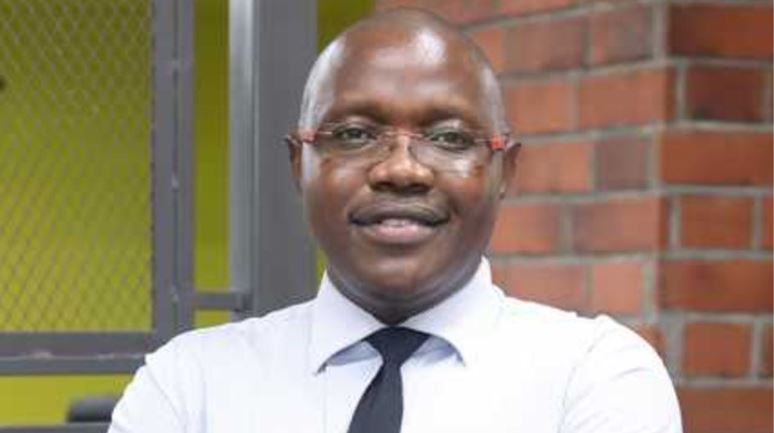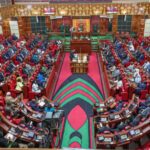 Victor Otieno Agolla wears many hats; he is a policy advisor to the board of the Association of Startup and SME enablers of Kenya (ASSEK), an SME ecosystem strategist, leader, researcher and consultant.
Victor Otieno Agolla wears many hats; he is a policy advisor to the board of the Association of Startup and SME enablers of Kenya (ASSEK), an SME ecosystem strategist, leader, researcher and consultant.
He has also worked with several start-up accelerators in Kenya and East Africa and co-authored two handbooks on agribusiness and basic entrepreneurship skills.
How did you discover your passion?
I grew up in Nairobi’s Eastlands area, and I witnessed firsthand how small traders struggled to fend for their families. While they had the necessary drive and a positive attitude, they lacked essential business management skills, funding and market intelligence. They were also frequently harassed by local authorities. As a result, their businesses would stagnate for years before collapsing. This is what inspired me to support SMEs. I’m driven by the desire to transform the lives of Kenyan and African entrepreneurs by offering local solutions that not only resonate with them, but are practical.
What is Viffa Consult and what do you do?
We’re a research and consultancy firm whose mission is to address challenges that most SMEs face such as lack of funds, poor access to the market, misinformation, obsolete technology and lack of sound management skills. We do this by blending the findings of our various research projects to build a knowledge base that informs policy formulation, SME engagement with corporates and provision of market intelligence. So far, we have directly supported more than 500 SMEs in sub-Saharan Africa.
How would you describe the current SME ecosystem in Kenya?
There are so many institutions that seek to support entrepreneurship and enterprise development by offering various services. But despite this support and their significant contribution to Kenya’s socioeconomic development, SMEs continue to experience a mortality rate of 75 per cent within three years of inception. Political tension, high interest rate cap and incoherent tax regimes, heavy government borrowing and delayed payment by counties are mainly to blame for SMEs woes. Covid-19 has only made things worse.
Do you think small businesses get enough support?
Kenya has significantly improved in the World Bank ranking on ease of doing business. However, many SMEs are still struggling to acquire permits and other approvals. We must address these systemic challenges.
The government did well to reduce corporate, VAT and turnover taxes, and setting up an SME credit guarantee scheme. While these efforts are laudable, it’s worth noting that 79 per cent of SMEs are informal in nature and may not enjoy these benefits. We can borrow lessons from West African nations that have done well to support their SMEs in entertainment, food and fashion among others.
What needs to be done to revamp the SME landscape?
Policies must focus on supporting SMEs in their current state, with a clear transition framework. Setting up modern housing and expecting slum dwellers to move in, for instance, is a misguided strategy. Providing residents with clean water and electricity and supporting them to move gradually, is much more practical.
The government plans to set up special economic zones across the country to support manufacturing and value addition. Inclusive funding, and providing these SMEs with electricity, water, upskilling, machines and standardisation will go a long way. While the credit guarantee scheme is welcome, SMEs require different forms of financing in their different growth stages. Thorough consultation among stakeholders is key in the development of interventions.
Why is it necessary to protect SMEs?
Kenyan SMEs are the undisputed backbone of the Kenyan economy. Records from the Kenya National Bureau of Statistics (KNBS, 2016) show that SMEs constitute 98 per cent of all businesses in Kenya and contribute 33 percent to the GDP. They employ more than 30 percent of the country’s youthful population. Kenyans should support small businesses by buying local products.
Any insights that businesses can pick from the economic downturn occasioned by Covid-19?
This pandemic may have decimated some businesses, but it has presented new opportunities in the digital space. SMEs have realised the need to rely on data to drive strategy and to adopt a collaborative approach with other start-ups and institutions rather than compete. It has also been a wake-up call for SMEs to shift from unproductive sectors to fields with greater potential such as manufacturing and agritech.
Is it possible to predict the future of small businesses after the current crisis?
We can’t predict the future but we can project trends. First, we must acknowledge that customer tastes and preferences will shift. Secondly, it is imperative to appreciate that customers’ disposable income may shrink owing to a wobbly economy, salary cuts and job losses. As these changes occur, distribution channels may shift to online. This makes data a central cog in building competitive advantage. Going forward, advocacy and lobbying for capabilities of SMEs will be critical. Worth noting, the role of self-help groups (chamas) to SME development as a resilience mechanism will become more popular.
How can young people improve their financial literacy?
Financial literacy must be all-encompassing right from primary school, all the way to institutions of higher learning. Secondly, financial institutions must adopt entrepreneur capacity building and support.
What common entrepreneurship mistakes would you avoid if you were a budding entrepreneur?
I’d be careful not to adopt a business model that doesn’t articulate my value proposition. I would first engage an industry expert or mentor. More importantly, I would seek to learn as much as I can about the business. I would also strive to maintain a strong support system of family, friends and other entrepreneurs.
When do you focus on yourself given your multiple roles?
God and family are central in my life. Everything else comes second. Every business activity is dependent on the schedule I have with my family. This way, I’m able to focus on my loved ones and on my own personal growth.






